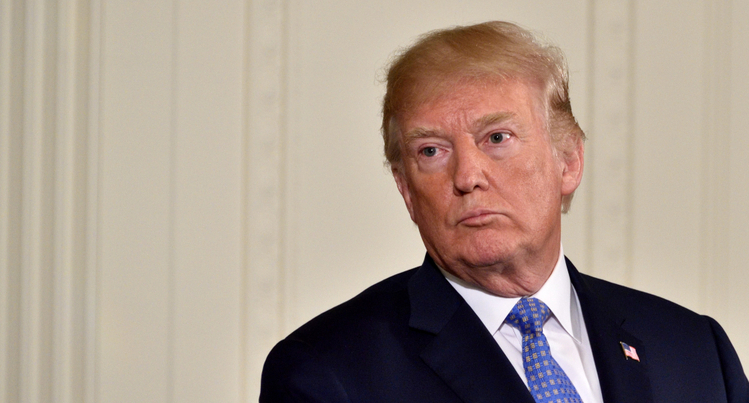Trump administration seeking to deport Vietnam War refugees

President Donald Trump. Shutterstock.
More than 40 years after the Vietnam War ended, the Trump administration is preparing an effort to deport refugees from that war who ended up in the United States.
The effort was first reported by the Atlantic, which says the plan stems from the administration’s recent efforts to reinterpret a 2008 agreement between the Vietnamese and U.S. governments. That agreement says Vietnam War refugees who arrived in the United States after 1975 but before July 12, 1995—the day the two nations re-established diplomatic relations—are not deportable.
In 2017, the Trump administration reinterpreted that agreement to exclude Vietnamese refugees who have been convicted of crimes—about 7,800 of the 8,600 Vietnamese nationals the administration considered deportable, according to a Reuters article from April. That move contributed to the departure of U.S. ambassador to Vietnam Ted Osius in November of 2017. Hanoi has objected, but Osius told Reuters in April that the Trump administration had threatened diplomatic and trade repercussions if it didn’t fall into line.
Public interest organization Asian Americans Advancing Justice sued the administration over the policy, and a filing in that case said the government was backing off, the New York Times reported in November. Department of Homeland Security spokesperson Katie Waldman confirmed at that time that they weren’t pursuing deportations, although ICE continued to argue that it had the right to deport those people.
Now, the Atlantic says, the deportations are back on the table. Spokesman James Thrower of the U.S. Embassy in Hanoi told the Atlantic that the United States believes it has the right to deport all Vietnamese nationals in the U.S. who have been convicted of crimes or are undocumented. Thrower said that the agreement laid out procedures for deporting post-1995 immigrants, and while the agreement said those procedures didn’t apply to pre-1995 immigrants, it does not expressly preclude deporting those people.
The 2008 treaty is automatically renewed every three years unless one party opts out, the Atlantic notes. It is set to expire again in January. Advocacy group the Southeast Asia Resource Center told the Atlantic that State Department officials have met with Vietnamese embassy representatives to discuss changing the agreement.
In addition to hurting relations between the two countries, Osius said in April, the deportations could threaten the safety of people who supported South Vietnam, which lost the war despite U.S. backing.
“There was resistance on the Vietnamese side because these folks would make trouble,” he said. “They’d be worried about them being destabilizing actors in this country.”
The move is already getting pushback. A separate Atlantic article notes that 22 House Democrats have signed a letter expressing “concern” about the Trump administration’s about-face. Phi Nguyen of Asian Americans Advancing Justice told the magazine he’d received numerous emails from worried Vietnamese Americans, and AAAJ has joined numerous organizations and lawmakers to formally call on the administration to stop the deportations.
AAAJ estimates that about 8,500 people could be affected, all of whom have lived in the United States between 23 and 43 years. An order in the organization’s proposed class-action lawsuit describes seven named plaintiffs, most of whom left Vietnam as children and whose immediate families are U.S. citizens or lawful permanent residents. Those plaintiffs were convicted of drug charges, driving without a license, check fraud, vandalism, simple assault and battery, robbery and burglary.



